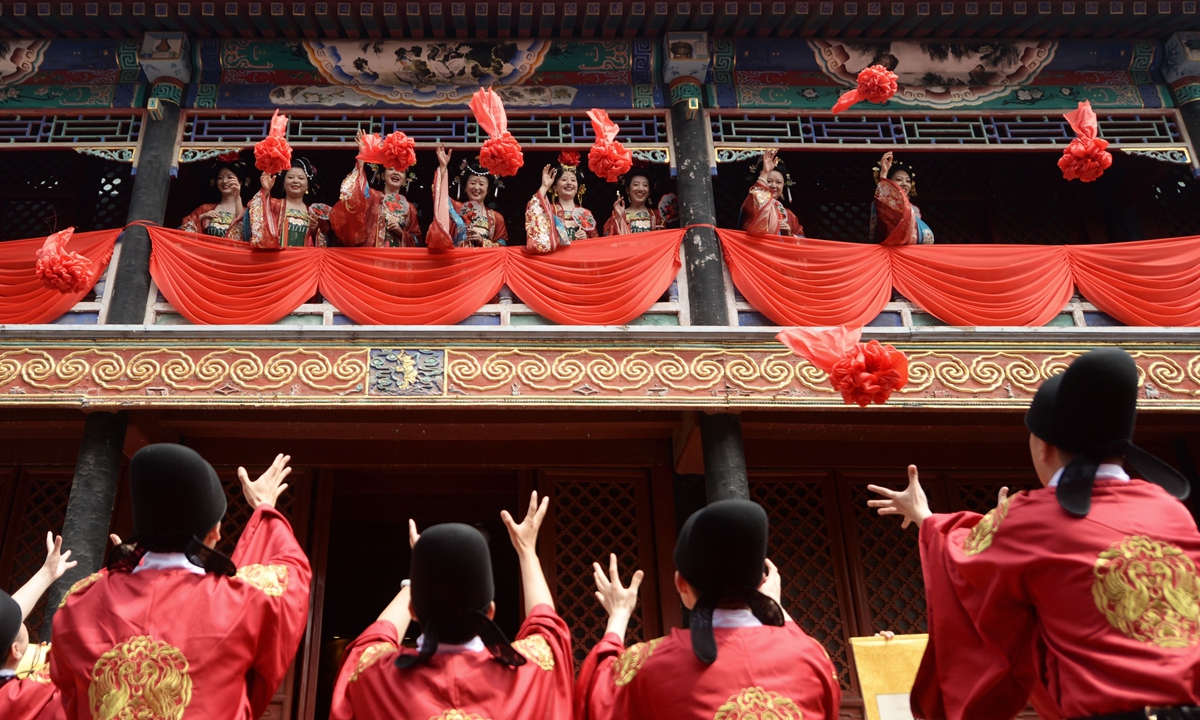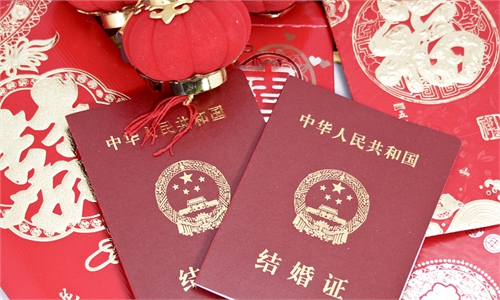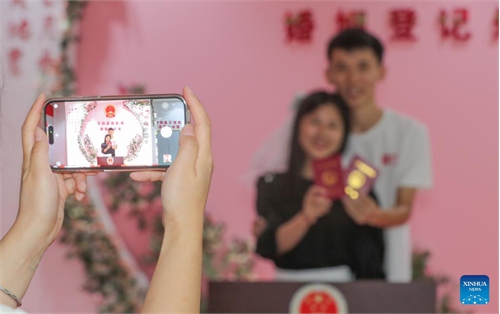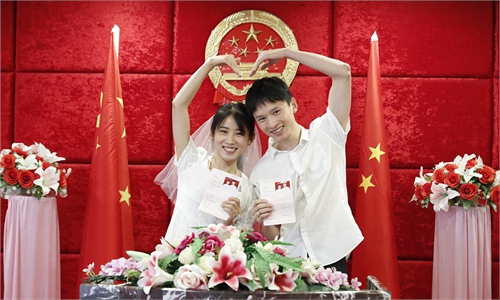
Eight newlywed couples participate in a Tang Dynasty-style (618-907) wedding ceremony organized by the Beijing Xicheng District Civil Affairs Bureau, which includes throwing an embroidered ball, on May 20, 2024. In recent years, more and more Chinese newlyweds are opting for traditional Chinese wedding ceremonies. Photo: VCG
Multiple Chinese cities have announced that they will work overtime on Qixi Festival, or the Chinese Valentine's Day, falling on Saturday this year, to accommodate more couples seeking to register their marriages on the auspicious day, with some initiatives introduced, such as offering special gift packages and organizing group wedding ceremonies.
Some of the marriage registration offices, including those in Suzhou, East China's Jiangsu Province, and Shanghai, have already filled up their online reservation slots. Civil affairs authorities in Suzhou announced that couples can also wait in line onsite to conduct relevant procedures.
Local civil affairs authorities encourage marriage registration offices to meet the needs of the public and carry out related services, but there are no specific mandatory regulations, China's Ministry of Civil Affairs said on Monday, in response to a netizen's question about whether marriage registration can be conducted on this year's Qixi Festival, which falls on a Saturday.
Local civil affairs authorities' move to work on Saturday reflects a responsive attitude, demonstrating the "continuous improvement" of grass-roots governance in meeting the requirements of modern society, Song Jian, a demographer from the Center for Population and Development Studies of the Renmin University of China, told the Global Times on Thursday.
The move also promotes traditional culture and adds a sense of ceremony to marriages, fostering marital stability and family harmony, Jiang Quanbao, a professor from the Institute for Population and Development Studies at Xi'an Jiaotong University, told the Global Times on Thursday.
Meanwhile, cultural activities themed around Qixi are being launched in many places across the country, driving the continuous improvement of the consumption market. In Xiaogan, Central China's Hubei Province, themed activities will include Hanfu shows, light shows, and collective weddings.
The Qixi Festival flower pre-ordering has started. "Our orders have doubled compared to normal days," a Shanghai-based flower shop owner surnamed Yao told the Global Times on Thursday. "We will be operating 24 hours on Qixi, ensuring that the flowers are delivered on time," Yao said.
China witnessed 3.43 million couples registering for marriage in the first half of this year, down by 498,000 couples during the same period from last year, according to the Ministry of Civil Affairs.
The government has implemented policies to boost fertility, such as universal childcare. These measures aim to create a positive atmosphere for marriage, encourage young people to marry at the right time, and promote correct views on marriage and family, to alleviate anxiety, reduce pressure, and create a marriage and fertility friendly society, Jiang said.



